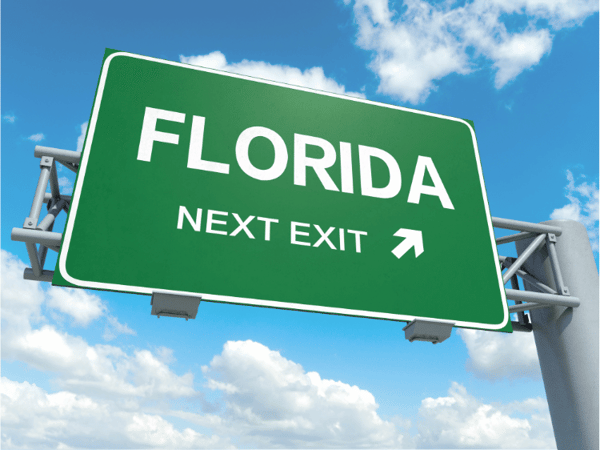Workers' Compensation is mandatory for businesses in Florida, posing a challenge for high-risk companies that are in a high-hazard class of business or have experienced above-average workers comp claims. As a result, selling insurance specifically designed for high-risk businesses offers an opportunity for insurance brokers looking to break into this niche market. It's important to understand what specialty workers' comp does and doesn't cover, what the placement process involves, who needs it, and what happens to businesses without it.

WHAT IS HIGH-RISK OR SPECIALTY WORKERS' COMP?
High-risk or specialty workers' comp is designed for companies in a high-hazard class of business or with a higher-than-average number of claims. There are many workers' compensation insurance options available for high-hazard clients including, but not limited to:
- Standalone Workers' Comp
- Guaranteed Cost Options
- Large Deductible Options
- Dividend Plans
- Return-Of-Premium Plan
- Alternative Workers' Compensation Plans
In some cases, insurance providers offer pay-as-you-go options and zero-premium deposits.
WHAT DOES WORKERS' COMP COVER?
Specialty workers' compensation covers the employee's costs for all reasonable and necessary medical treatments as well as some of the lost wages related to a work-related injury or illness.

WHAT IT COVERS
Specialty workers' compensation covers the following:
- Medical costs, including the initial emergency room visit, treatment, etc.
- Ongoing costs to cover things such as rehabilitation programs, physical therapy, etc.
- Partial lost wages during the time the employee is unable to work due to their injuries and recovery
- Funeral expenses
- The company's costs for attorney's fees, court costs, and settlements should the employee choose to sue for further compensation
WHAT IT DOESN'T COVER
The costs not covered by workers' compensation include:
- Injuries or illnesses not related to or that don't occur at work
- Intentional injuries for the purpose of collecting compensation
- Injuries due to intoxication on the job or substance abuse
WHAT IS THE UNDERWRITING PROCESS FOR HIGH-RISK WORKERS' COMP IN FLORIDA?
When Novatae provides high-risk workers' comp services in Florida, the process is quite involved. It is designed to suit the needs of the broker and provide the best carrier for the insured to partner with. The steps include:
- The initial review of the application
- Determining which carrier has the appetite and services that would best fit the risk
- Recommending the policy type and conditions
- Finding solutions to help reduce claim frequency
- Negotiating coverage terms to create a policy suited to the agents, brokers, and applicant
- Reviewing the financial strength of the risk
The goal is to find the best solution for your client's needs.
TYPES OF BUSINESSES THAT OFTEN NEED SPECIALTY WORKERS COMP IN FLORIDA

The types of businesses most often requiring specialty workers comp in Florida include:
Construction Companies
Construction workers are exposed to dangerous conditions and equipment that increase their risk of injury and fatalities.
Manufacturing Companies
Manufacturing workers can be exposed to heavy machinery, hazardous materials, and toxic chemicals depending on the products they manufacture.
Agriculture Companies
Agriculture is a dangerous industry with the introduction of pesticides and herbicides, long hours at challenging times of the day, extreme temperatures without relief, heavy machinery, and more.
Transportation Companies
Transportation workers such as truck drivers and bus drivers work in high-traffic areas under dangerous conditions for long periods of time and often on unfamiliar routes.
Healthcare Companies
Healthcare workers are exposed to infectious diseases, long hours, high stress, sometimes violent or aggressive patients, and hazardous materials.
There are also what is known as "tough classes," which include workers such as:
- Assisted Living
- Ambulances
- Bridge Painting
- Chemical Mixing
- Demolition
- Emergency Transport
- Framing
- Freight Handlers
- Garbage Operations
- In-Home Care
- Limo Services
- Logging And Woodwork
- Manufacturing
- Nursing
- Rideshare
- Roofers, Solar and Sign Installers
- Steel Erectors
- Staffing Agencies
- Tower Climbers
- Towing
- Tree Pruning
- Trucking
- Warehouses
WHAT ARE THE CONSEQUENCES OF NOT HAVING WORKERS' COMP IN FLORIDA?
Businesses operating without the required coverage must pay a penalty that is equal to two years of insurance premium payments. They will also receive a stop-work order preventing operations until the company complies and pays the penalty. If the company does not comply following a stop-work order, it can face criminal charges.
CALL OUR WHOLESALE BROKERS IF YOU HAVE HIGH-RISK WORKERS IN FLORIDA
Novatae underwriters provide coverage for high-risk companies and tough classes with great success binding large and complex transactions. Let our team assist in designing the perfect high-risk and specialty labor workers' comp insurance policies for your difficult-to-place clients with customized solutions designed to meet Florida regulations.
This article is not intended to be exhaustive, nor should any discussion or opinions be construed as legal advice. Readers should contact legal counsel or an insurance professional for appropriate advice.
About the Author
Insights
- What is an Umbrella Insurance Policy?
- What is Animal Mortality Insurance?
- MFA: The Cyber Version of a "Highly Protected Risk"
- Convenience Store Insurance Programs: What You Need to Know
- Home Health Liability Insurance: What You Should Know
- Commercial Builders' Insurance: Comprehensive Protection for Construction Professionals
- Understanding the Role of Additional Insureds in Commercial Insurance
- Convenience Store & Gas Station Insurance Coverage Explained
- The Convergence of Cybersecurity and Cyber Insurance
- It’s Easy to Become a Criminal Hacker!
- Medical Spa Insurance: What Insurance Retailers Need to Know
- Contractors Professional Liability Insurance
- Action Over Coverage and Exclusions



.png)
.png)